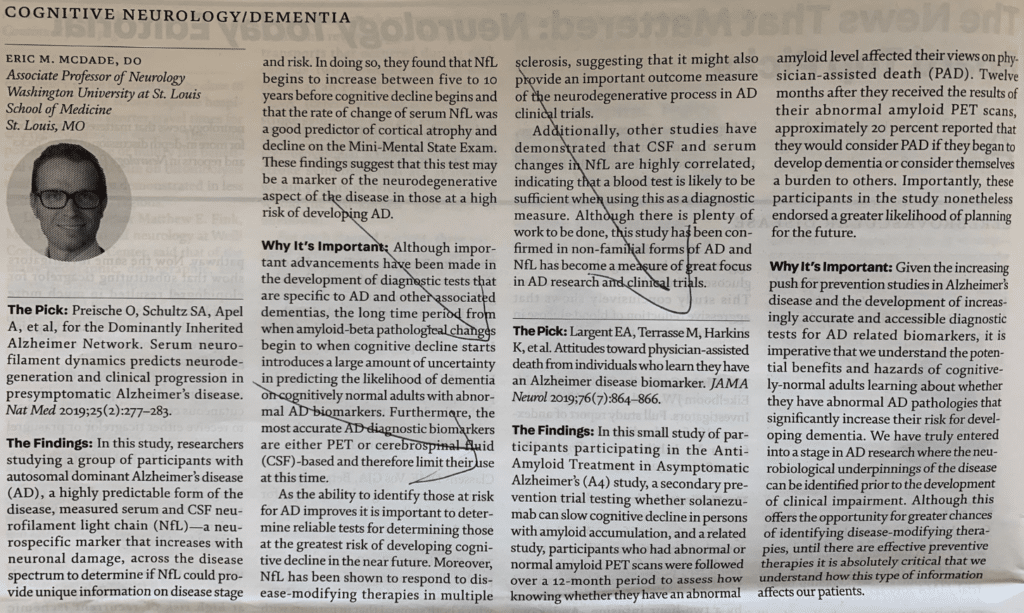
Credit: @domsisti/Twitter
By Danny Yarnall
Neurology Today selected research from the Penn Program on Precision Medicine for the Brain as a part of an annual round-up of the year’s most important advancements in the field of neurology.
The work — by PMC Scholar Emily Largent, PhD, JD, RN; PMC Co-Director Jason Karlawish, MD; and PMC Research Program Manager Kristin Harkins, MPH — studied attitudes of gene and biomarker disclosure study participants on physician-assisted-death (PAD). This caught the eye of Neurology Today’s experts for addressing an “absolutely critical” need to understand how genetic and amyloid biomarker disclosure affects patients’ plans for the future.
In their paper published in JAMA Neurology last April, the team looked at cognitively normal participants learning their likelihood of developing dementia to understand a persons’ attitudes when considering PAD.
The researchers found approximately 20 percent of interviewees with elevated amyloid stated they would pursue PAD if they were to become cognitively impaired, were suffering, or were burdening others. On the other hand, nearly two-thirds of interviewees with elevated amyloid stated that they neither had nor would pursue PAD, describing personal, religious, or philosophical objections that led them to conclude PAD would not be right for them. Although, many acknowledged that PAD could be right for others in similar circumstances.
After publication, the research was featured in The New York Times and the Good Law/ Bad Law podcast hosted by University of Pennsylvania law school alumnus Aaron Freiwald.
The research addresses a wider concern of ethics in disclosure as clinicians are able to diagnose Alzheimer’s and dementia before major impairments occur thanks to imaging technology and genetic testing.
“It is imperative that we understand the potential benefits and hazards of cognitively-normal adults learning about whether they have abnormal AD pathologies,” wrote Eric M. McDade, DO, for Neurology Today.